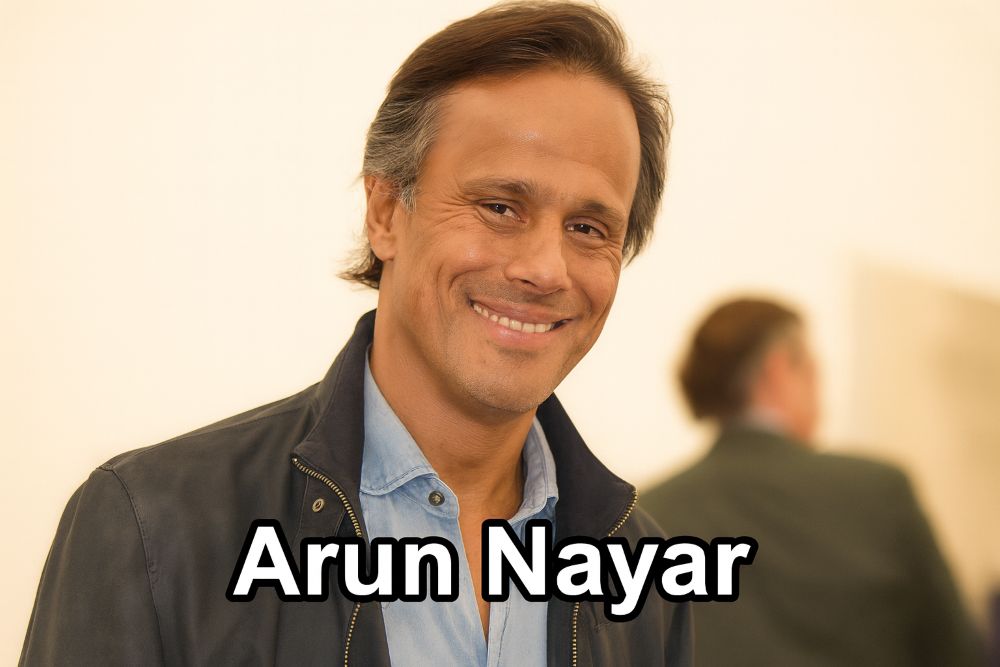Introduction: The Many Faces of Alanna Ubach
In an industry where typecasting is common and versatility is rare, Alanna Ubach stands as a remarkable exception. With a career spanning over three decades across film, television, theater, and voice acting, Ubach has demonstrated an unparalleled ability to transform herself completely for each role. From the ditzy Serena in Legally Blonde to the formidable Mamá Imelda in Coco, her performances have consistently defied expectations and showcased her extraordinary range.
What makes Ubach’s journey particularly fascinating is how she has navigated Hollywood’s shifting landscape while maintaining artistic integrity. In an era where Latinx representation was scarce, she carved out space for herself through sheer talent and determination. Her ability to oscillate between broad comedy and poignant drama, often within the same year, speaks to her technical mastery and emotional intelligence as a performer. Beyond her acting prowess, Ubach has emerged as an important voice advocating for diversity in entertainment, using her platform to push for more authentic representation of Latinx stories and characters.
This comprehensive profile will explore Ubach’s remarkable career in detail, examining her early beginnings, breakthrough roles, creative process, and lasting impact on the entertainment industry. Through interviews, critical analysis, and career retrospectives, we’ll uncover what makes this chameleonic performer one of Hollywood’s most valuable and underrated talents.
Early Life and Formative Influences: The Making of a Performer
Alanna Noel Ubach’s artistic journey began in Downey, California, where she was born on October 3, 1975, to Rodolfo Ubach, a businessman of Puerto Rican and Spanish descent, and Sidna González, a Mexican-American homemaker. Her multicultural upbringing in a bilingual household provided rich creative nourishment that would later inform her acting choices. The Ubach home was filled with music, from traditional Latin boleros to American rock and roll, creating an eclectic artistic foundation.
From an extraordinarily young age, Ubach exhibited performative tendencies. Family anecdotes recount how she would stage impromptu shows for relatives, complete with costumes and character voices. Her parents recognized this innate talent early and enrolled her in dance and acting classes by age four. A particularly formative experience came when she attended a performance of “The Nutcracker” at five years old – the spectacle ignited her imagination and cemented her desire to perform professionally.
Her first professional break came at age three when she appeared on the children’s television program Romper Room. This early exposure to television production planted seeds that would later blossom into a full-fledged career. By her pre-teen years, Ubach was already studying method acting at the prestigious Lee Strasberg Theatre Institute’s children’s program, where she developed the disciplined approach that would characterize her later work.
The Early Career: Building a Foundation (1980s-1990s)
Ubach’s transition from child actor to professional performer began in earnest during early Alanna Ubach teens. Her first significant television role came in 1991 as a recurring character on The Torkelsons, where she played Dorothy Jane’s quirky friend. This led to her breakthrough as Josie on Beakman’s World (1992-1993), where she became the show’s first female co-host. The educational program allowed her to flex both her comedic timing and improvisational skills, often having to explain scientific concepts in entertaining ways.
The mid-1990s saw Ubach making strategic moves into film. Her performance in Sister Act 2: Back in the Habit (1993) as one of the rebellious choir students demonstrated her ability to hold her own alongside established stars like Whoopi Goldberg. Director Bill Duke specifically praised Ubach’s professionalism and instinctual understanding of camera work, remarkable for someone her age. This was followed by her scene-stealing turn in The Brady Bunch Movie (1995), where she played one of Jan Brady’s friends in the satirical remake.
What set Ubach apart during this period was her deliberate choice to avoid being pigeonholed as just a child actor. She actively sought roles that challenged her, including a dramatic turn in the television movie A Friend to Die For (1994) opposite Tori Spelling. This early versatility foreshadowed the chameleonic quality that would define her later career.
The Breakthrough Years: Establishing a Unique Presence (2000-2010)

The turn of the millennium marked Ubach’s transition from promising young talent to established Hollywood performer. Her portrayal of Serena in Legally Blonde (2001) became an instant cultural touchstone. The role, which could have been a one-note comic relief character, was elevated by Ubach’s nuanced performance that balanced humor with unexpected depth. Director Robert Luketic recalls how Ubach improvised many of Serena’s most memorable lines, including the iconic “Oh my God, oh my God, you guys!”
This period also saw Ubach taking on increasingly complex roles. In Meet the Fockers (2004), her transformation into Isabel Villalobos involved three hours of daily makeup to age her appearance significantly. The physical commitment was matched by her meticulous character work – she studied older women’s mannerisms and speech patterns to create a fully realized character rather than a caricature.
Concurrently, Ubach began building an impressive voice acting resume. Her work on El Tigre: The Adventures of Manny Rivera (2007-2008) showcased her ability to create distinct vocal characters, a skill that would later prove invaluable in her animation work. She also continued appearing in independent films like Loving Annabelle (2006), demonstrating her commitment to projects with substantive storytelling regardless of budget size.
Artistic Maturation: Critical Acclaim and Cultural Impact (2011-Present)
The second decade of Ubach’s career saw her achieving new levels of critical recognition and cultural relevance. Her performance as Mamá Imelda in Coco (2017) represented a career-defining moment. The role required her to tap into her Mexican heritage profoundly, including singing the emotional ballad “La Llorona” in Spanish. Director Lee Unkrich specifically sought Ubach for her ability to convey both stern authority and deep love in her vocal performance.
In television, Ubach’s role as Suze Howard in Euphoria (2019-present) demonstrated her dramatic range. Her portrayal of a mother struggling with her daughters’ complex lives brought unexpected depth to the series. Show creator Sam Levinson praised Ubach’s ability to find humor in dark situations without undermining the drama, calling her “one of the most instinctive actors I’ve ever worked with.”
Her recent work in The Flight Attendant and Ted has shown her continuing to evolve as a performer. What’s particularly notable is how she’s begun incorporating more of her personal experiences into her roles, especially regarding motherhood and cultural identity. This autobiographical element has added new layers to her performances, making them more textured and personally resonant.
The Craft: Examining Ubach’s Acting Technique
Ubach’s approach to acting combines rigorous technical training with intuitive spontaneity. Having studied at the Lee Strasberg Institute, she employs method techniques when appropriate but isn’t dogmatic about any single approach. For comedic roles, she often develops extensive backstories for her characters, a practice more commonly associated with dramatic acting.
Her preparation for Coco provides insight into her process. Ubach spent months researching Mexican folklore and family dynamics, even visiting Guanajuato to absorb the environment that inspired the film. For the musical elements, she worked with a vocal coach to perfect her Spanish pronunciation and singing technique, treating the animated role with the same seriousness as a live-action part.
In interviews, Ubach frequently discusses the importance of listening in her acting. She describes building performances through authentic reactions rather than predetermined choices, allowing her to create spontaneous, lived-in moments. This approach is evident in her improvisational work, particularly in comedies where she’s known for elevating material through unexpected choices.
Cultural Significance and Industry Impact
As a Latina actress working primarily in mainstream American entertainment, Ubach’s career trajectory offers important insights into the evolving representation landscape. Early in her career, she often found herself auditioning for generic “ethnic” roles rather than specifically Latina characters. Her ability to transcend these limitations through sheer versatility helped pave the way for more nuanced portrayals of Latinx characters in Hollywood.
Her work in Coco holds particular cultural significance. By bringing authenticity to Mamá Imelda, Ubach helped ensure the film’s respectful portrayal of Mexican traditions. She’s spoken extensively about how meaningful it was to contribute to a project that celebrated her heritage while reaching global audiences.
Behind the scenes, Ubach has become an advocate for more inclusive casting practices. She’s worked with emerging Latinx writers and directors, offering guidance based on her decades of industry experience. Her production company, currently in development, aims to create opportunities for underrepresented voices in entertainment.
Personal Philosophy and Future Directions
When discussing her career philosophy, Ubach emphasizes curiosity and continuous growth. Unlike many actors who specialize in a particular genre, she actively seeks out roles that scare her or take her out of her comfort zone. This mindset has led to one of the most eclectic resumes in contemporary Hollywood.
Looking ahead, Ubach has expressed interest in directing and developing projects that explore her cultural heritage in more depth. She’s also passionate about theater and hopes to return to stage work, possibly in musical productions that combine her acting and singing talents. Whatever direction she chooses, Ubach will certainly continue to surprise audiences and redefine expectations.
Conclusion: The Enduring Legacy of a Transformative Artist

Alanna Ubach’s career stands as a testament to the power of versatility in an industry that often rewards typecasting. By refusing to be limited by genre, medium, or cultural expectations, she has created a body of work that is as diverse as it is accomplished. From blockbuster comedies to animated masterpieces, from television dramas to independent films, Ubach has left her mark on every facet of entertainment.
Perhaps most impressively, she’s achieved this while maintaining artistic integrity and advocating for meaningful change in the industry. As Hollywood continues evolving toward greater representation and inclusivity, Ubach’s journey offers both inspiration and a roadmap for future generations of performers. Her story reminds us that true artistry lies not in fitting into boxes, but in having the courage and talent to transcend them completely.





